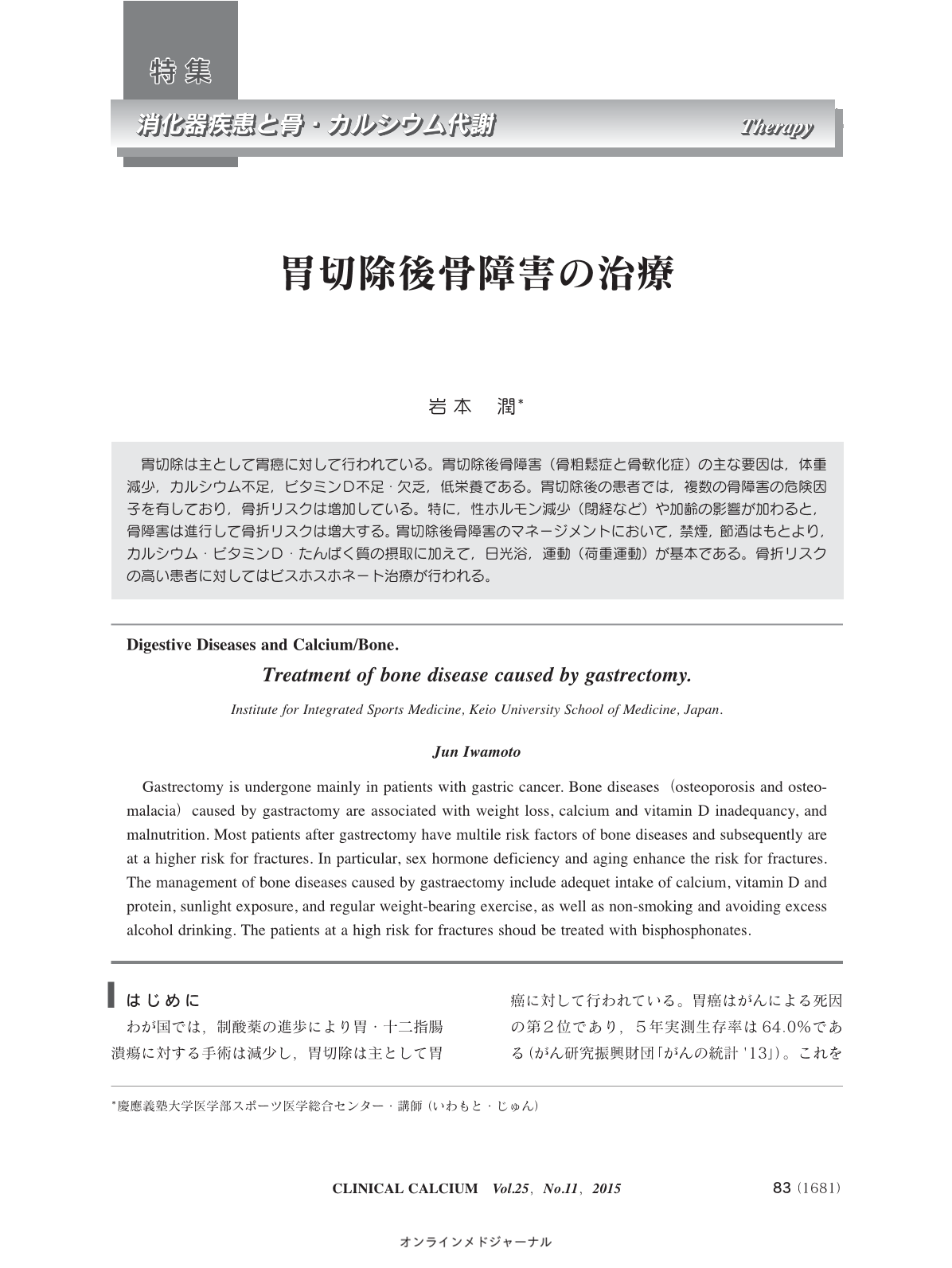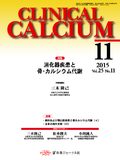Japanese
English
- 有料閲覧
- Abstract 文献概要
- 1ページ目 Look Inside
- 参考文献 Reference
胃切除は主として胃癌に対して行われている。胃切除後骨障害(骨粗鬆症と骨軟化症)の主な要因は,体重減少,カルシウム不足,ビタミンD不足・欠乏,低栄養である。胃切除後の患者では,複数の骨障害の危険因子を有しており,骨折リスクは増加している。特に,性ホルモン減少(閉経など)や加齢の影響が加わると,骨障害は進行して骨折リスクは増大する。胃切除後骨障害のマネージメントにおいて,禁煙,節酒はもとより,カルシウム・ビタミンD・たんぱく質の摂取に加えて,日光浴,運動(荷重運動)が基本である。骨折リスクの高い患者に対してはビスホスホネート治療が行われる。
Gastrectomy is undergone mainly in patients with gastric cancer. Bone diseases(osteoporosis and osteomalacia)caused by gastractomy are associated with weight loss, calcium and vitamin D inadequancy, and malnutrition. Most patients after gastrectomy have multile risk factors of bone diseases and subsequently are at a higher risk for fractures. In particular, sex hormone deficiency and aging enhance the risk for fractures. The management of bone diseases caused by gastraectomy include adequet intake of calcium, vitamin D and protein, sunlight exposure, and regular weight-bearing exercise, as well as non-smoking and avoiding excess alcohol drinking. The patients at a high risk for fractures shoud be treated with bisphosphonates.



